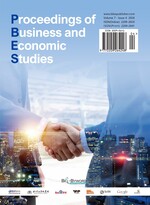Abstract
The purpose of this paper is to use the MaxDiff model to explore the factors influencing the work motivation of staff in certain government agencies in Jiangmen City, and to conduct relevant empirical analyses. The study aims to propose strategies for improving work motivation among these staff members. The results indicate that the most significant factors affecting the work motivation of staff in Jiangmen government agencies are salary and remuneration, additional welfare benefits, and the power to make decisions about their own work. In contrast, factors such as a sense of belonging to the work unit, recognition of their work, and job security are less important. Therefore, it is recommended that government agencies in Jiangmen City increase the salaries and benefits of their staff and provide them with more decision-making power. This approach will stimulate their desire to work, enhance their motivation, improve the efficiency of government agencies, and elevate the level of public service. Ultimately, these measures will support the construction of a harmonious, stable, and orderly society.
References
Wang T, Wong B, Huang A, et al., 2011, Factors Affecting Residency Rank-Listing: A Maxdiff Survey of Graduating Canadian Medical Students. BMC Med Educ, 11: 61. https://doi.org/10.1186/1472-6920-11-61
Zhang L, Xie H, 2022, A Review on the Concept, Influencing Factors and Mechanism of Public Service Motivation. Journal of Xi’an University of Arts and Sciences (Social Sciences Edition), 25(1): 101–106.
Xue B, 2021, Research on Behavioral Motivation Factors of Local Government Officials: An Analysis Based on Grey-AHP-DEMATEL Algorithm. Journal of Anhui Administration College, 2021(2): 37–46.
Ahmad A, Muhammad M, Narullia D, 2021, Corporate Risk Disclosure: The Effect of Corporate Governance. Journal of Applied Managerial Accounting, 5(1): 101–113. https://doi.org/10.30871/jama.v5i1.2794
Wang X, 2020, Practical Research on Two-factor Theory in Human Resource Incentives of Government Departments. Small and Medium-Sized Enterprise Management and Technology (Mid-Day), 2020(3): 102–103.
Marley AAJ, Louviere JJ, 2005, Some Probabilistic Models of Best, Worst, and Best-Worst Choices. Journal of Mathematical Psychology, 49(6): 464–480. https://doi.org/10.1016/j.jmp.2005.05.003
Yang CR, 2007, Analysis and Research on Teachers’ Work Motivation in Higher Education. Modern University Education, (04):74-77.
Wu M, 2020, Research on Incentive Mechanism of New Generation Knowledge-Based Employees Under the Perspective of Maslow’s Hierarchy of Needs Theory. Modern Economic Information. 2020(8): 18–19.
Auger P, Devinney TM, Louviere JJ, 2007, Using Best-Worst Scaling Methodology to Investigate Consumer Ethical Beliefs Across Countries. Journal of Business Ethics, 70(3): 299–326. https://doi.org/10.1007/s10551-006-9112-7
Finn A, Louviere JJ, 1992, Determining the Appropriate Response to Evidence of Public Concern: The Case of Food Safety. Journal of Public Policy & Marketing, 11(2): 12–25. https://doi.org/10.1177/074391569201100202
